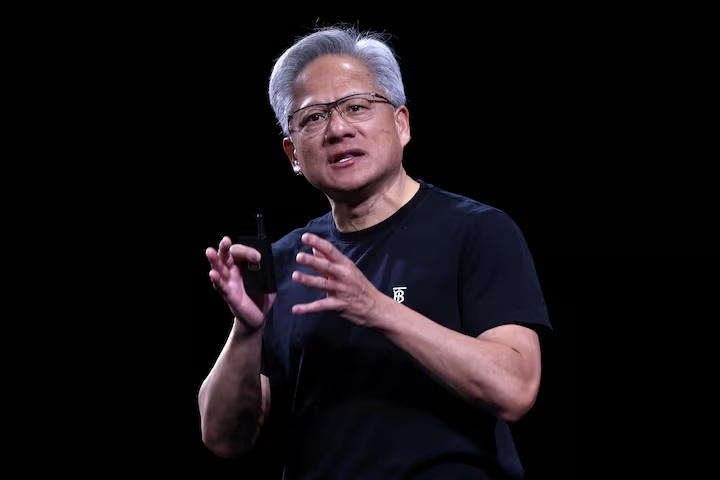Nvidia CEO Jensen Huang is set to meet with former U.S. President Donald Trump at the White House on Thursday, a day before his scheduled trip to China, according to a source familiar with the matter. The meeting comes as Nvidia’s market capitalization surged past $4 trillion for the first time, reinforcing its position as one of Wall Street’s most valuable companies. While details of their discussion remain undisclosed, the encounter highlights the chipmaker’s growing influence amid escalating U.S.-China tech tensions. Bloomberg first reported the planned meeting, though neither Nvidia nor the White House has officially commented.
The talks follow Huang’s public criticism of the Trump administration’s April export restrictions, which barred Nvidia from selling its H20 AI chip—a product designed specifically for the Chinese market. Huang previously described China as a “springboard to global success,” and the curbs have already cost the company $2.5 billion in lost sales in Q1, with an estimated $8 billion hit expected in Q2. In June, Huang told CNN that Nvidia would exclude China from its revenue and profit forecasts due to the stringent U.S. trade policies. The restrictions have forced the chip giant to navigate an increasingly fractured global semiconductor landscape.
Nvidia’s meteoric rise—driven by booming demand for its AI processors—has made it a focal point in the U.S.-China tech rivalry. The Biden administration has maintained and even expanded Trump-era export controls, citing national security concerns over advanced chip sales to China. Huang’s upcoming China visit, just after the Trump meeting, signals Nvidia’s efforts to balance geopolitical pressures with its commercial ambitions in a critical market. Analysts suggest the trip could involve discussions with Chinese tech firms and government officials about workarounds to U.S. sanctions.
The high-stakes diplomacy underscores Nvidia’s precarious position as both a beneficiary of AI’s explosive growth and a pawn in the broader semiconductor trade war. While the company continues to dominate the global AI chip market, its reliance on China—once a major revenue source—has dwindled under U.S. policy constraints. Huang’s back-to-back engagements with Trump and Chinese stakeholders reflect Nvidia’s attempt to mitigate losses while safeguarding its technological lead. As Washington and Beijing tighten trade barriers, the chipmaker’s next moves could reshape the future of AI development—and the balance of power in the tech cold war.














